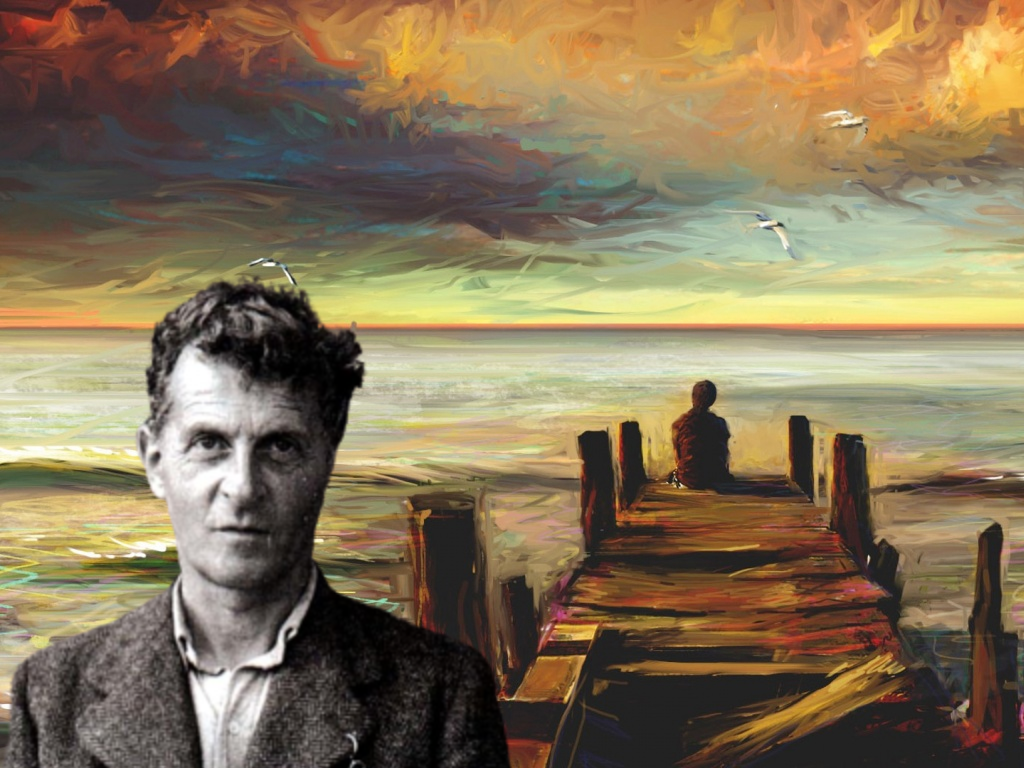In his work called Tractatus Logico-Philosophicus, Wittgenstein ends his book with the stunning phrase: “Whereof one cannot speak, thereof one must be silent”. Although this phrase of his has deeply affected me and my thinking, it is quite ironic that what I am doing right now contradicts with the literal meaning of the phrase, that is choosing not to be silent in interpreting Wittgenstein, and writing about it. However, I cannot stop myself from sharing some of his notes and his thinking along this Wittgenstein Series that I intend to write.
To get back to the phrase, Wittgenstein was initially interpreted as trying to narrow down the problems that philosophy engages with by limiting it to the observable; where supernatural concepts like God, beauty, justice, love were to be avoided, because it was meaningless to do so. However, his later notes reveal a different reality. Wittgenstein not only believes that such concepts are essential in being a human, but speaking of them degrades and cheapens our intuitive understanding of these concepts. Therefore, other means of expression take over when the capacity of language cannot withstand the significance of such concepts and the weightiness of human emotions. Hence when words fail to express, other forms of art (as in poetry) and culture (as in various rituals) take over.
Imagine a person that has been tortured and has been ripped of his dignity along with haunting memories that make the person he is now. As an attempt to empathize, when you approach that person and expect him to word all the repugnant feelings and pain attached to his memory, language acts as a barrier. Because every adjective uttered by the person to describe his mental state of being at the time, would be out of context when it reaches your cognition. Is your understanding of “pain”, which is a product of your own personal experiences, the similar of a person’s, who has faced torture, intuition of “pain”? When he describes his experience as “painful”, is “pain” associated with same images as he intends it to be? Perhaps, Wittgenstein’s suggestion of resorting to other forms of expression better reflects the overall state of mind and body of the person, that has been subject to such extraordinary experiences.
As another example, consider the immense love and mercy of a mother for her child. And consider the times your parent responded to your bewilderment of his/her actions by saying “you will understand once you become a parent“. I believe it is such expressions which assert the boundaries which language cannot cross and in which words fail to deliver the preciousness of the rich feelings and ethical aspects that may be intrinsic to being a parent. Can such metaphysical elements of being Human be turned into philosophical problems, a matter of curiosity? Can language, which describes ‘pictures’, be able to express what is not a picture but what can only ‘show itself’ through ‘pictures’? If silence is the language of God, then can one speak of metaphysical problems?
When the most important aspects of life: the ethical, the existence, the metaphysical, the aesthetic etc. can “show itself”, why blur our vision of them with words and lead to poor translation? Hence, whereof one cannot speak, thereof one must be silent.

Words fail me.
LikeLike